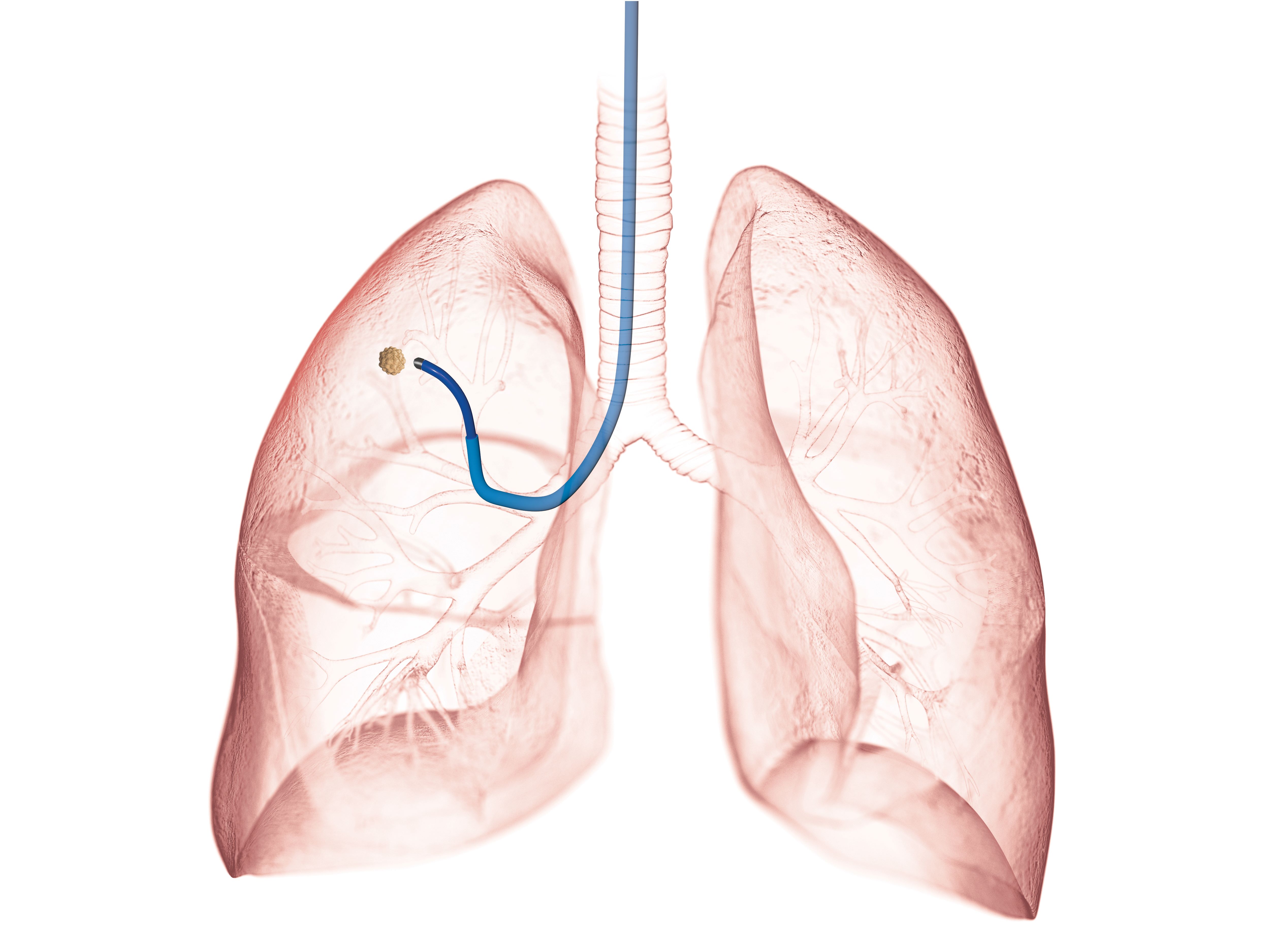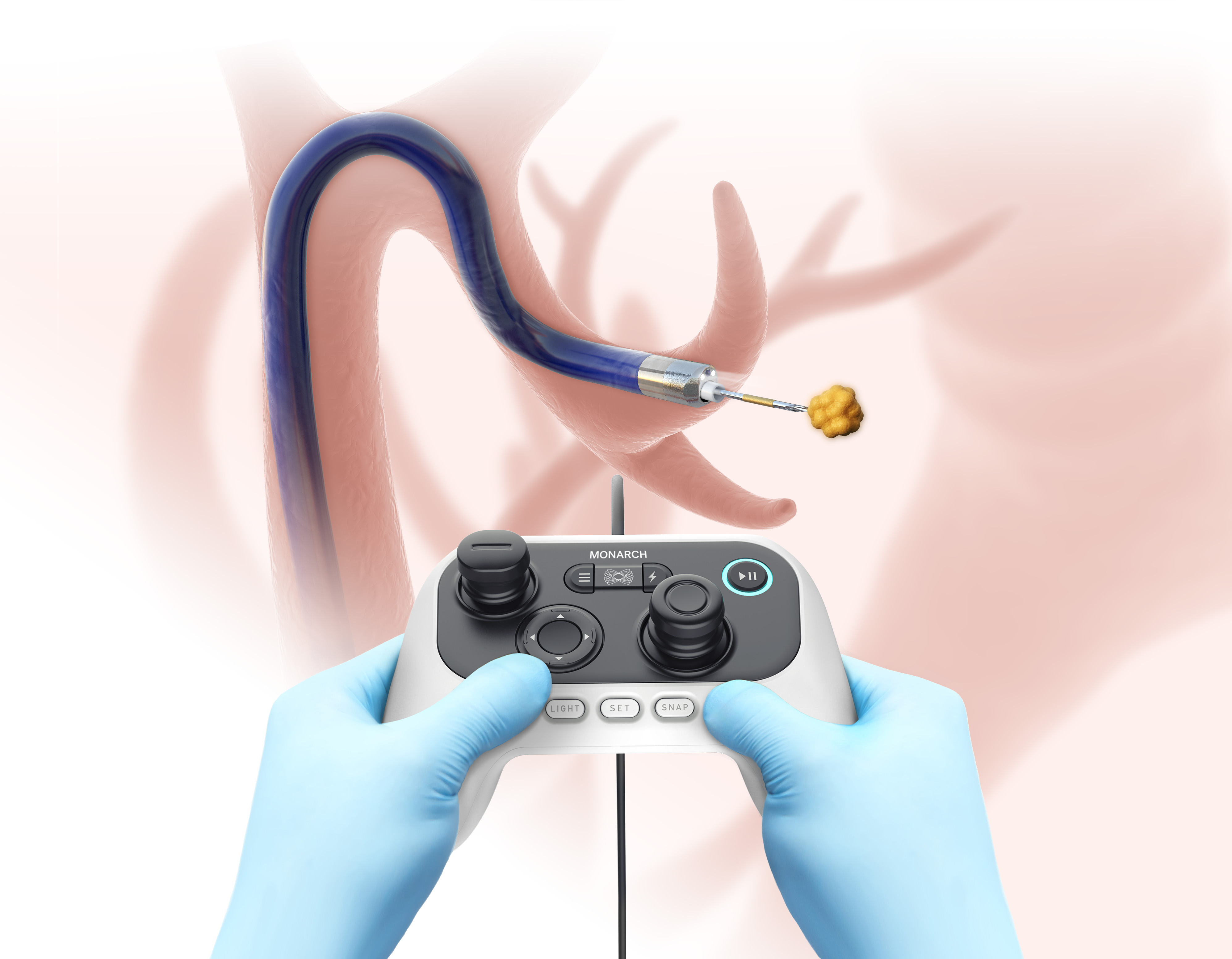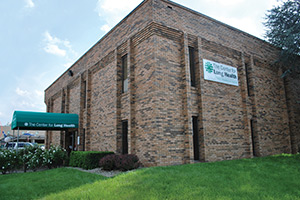Not all lung spots, or nodules, are cancerous. They can have many causes such as smoking, scar tissue or old infections. To find out if a nodule is cancerous, a bronchoscopy can be used to examine a small piece of tissue.
Before the procedure, you’ll be put to sleep using anesthesia. Your doctor will place the bronchoscope through the mouth, throat and into the lungs, securing it in one of the main branches of the lung. Using a hand-held controller, a catheter is passed through the scope into the airways. A combination of real-time visualization through tiny cameras and electromagnetic navigation (like a GPS for a car) is used that creates a road map for your doctor to find the nodule.
The robotic bronchoscope gives your doctor precise control and stability, making it easier to reach nodules deep in the lung without invasive surgery. Your doctor can take a tissue sample (biopsy) of a nodule and send it to the laboratory for testing. Once your results are available, your doctor will meet with you to discuss next steps and recommendations.

Yes, this procedure has been shown to be safe in both preclinical and clinical studies.1,2 However, every medical procedure carries some risk. The MONARCH™ Platform is designed to provide access and continuous visibility in the lungs.
Your physician is in control during the entire procedure. The robotic system is used to make it easier to access the nodule.
The procedure times may vary but will generally take about thirty to ninety minutes.2
It is an outpatient procedure and usually happens in a hospital operating room or endoscopy suite.

Clinical Interests:
Locations:

1305 Elm Street
Huntington, WV 25701
Phone: 304.399.2881
1Chen, Alexander, et al. Chest, vol. 156, no. 4, 2019, doi:10.1016/j.chest.2019.08.313.. Multicenter, Prospective Pilot and Feasibility Study of Robotic-Assisted Bronchoscopy for Peripheral Pulmonary Lesions (CHEST: Late Breaking Abstract) 2Chen, Alexander, et al. Chest, vol. 154, no. 4, 2018, doi:10.1016/j.chest.2018.08.1010. Robotic-Assisted Bronchoscopic...Tumor Targets -ACCESS Study